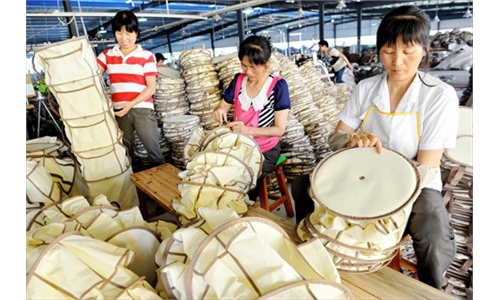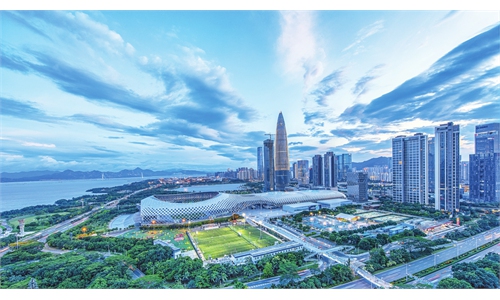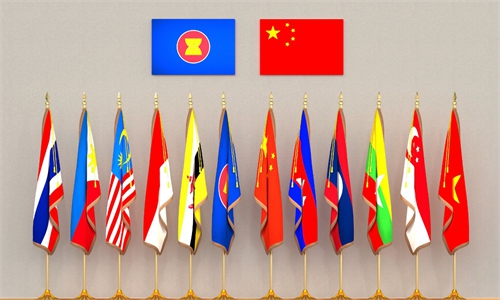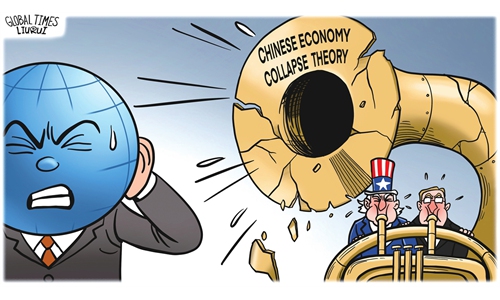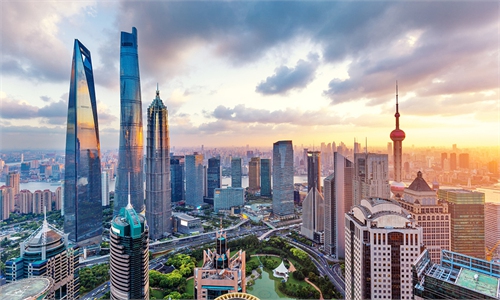Western media chanting ‘China collapse’ won’t hinder nation’s growth amid emerging economic rebound signs
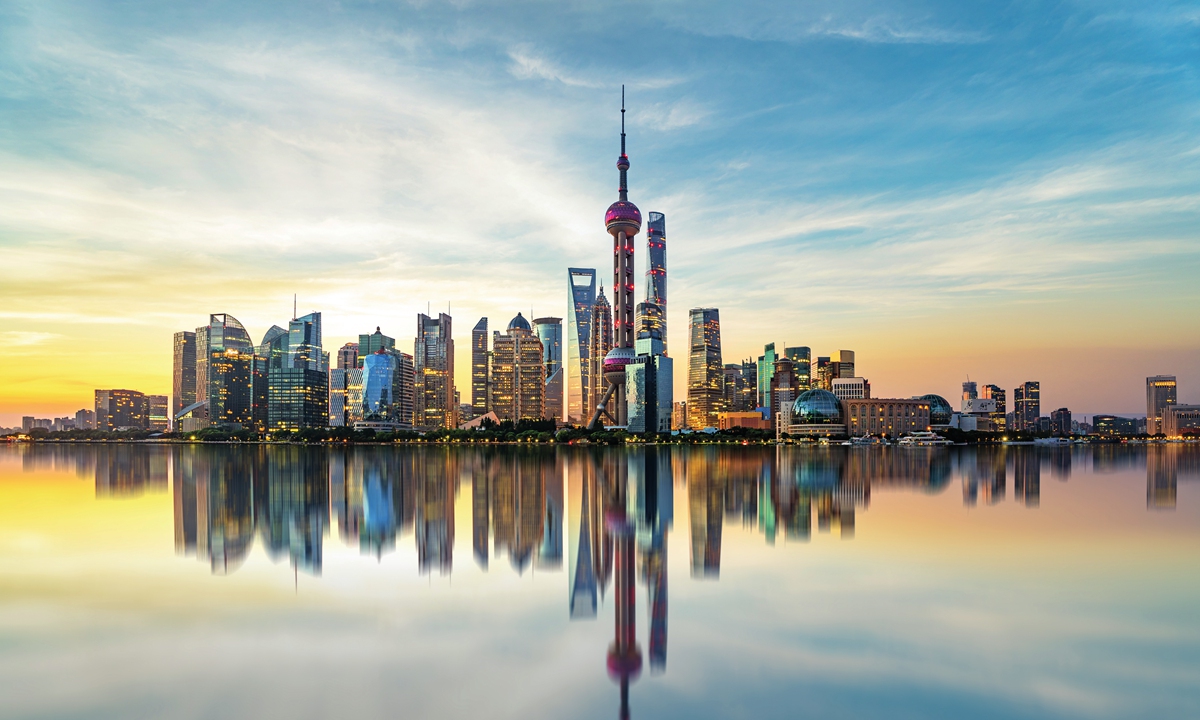
The skyline of Lujiazui in Shanghai Photo: CFP
Some Western media outlets have been churning out a flurry of vociferous columns bad-mouthing and smearing the Chinese economy, with increasingly gloomy and scary headlines. However, the dire prediction about the Chinese economy is only imagination and propaganda of some Western politicians and media outlets to distract their domestic audiences from domestic issues while discouraging other countries from cooperating with China out of fear that the world's second-largest economy may become No.1, experts said.The reality is that Chinese economy is well on the recovery track with increasingly strong innovation and green development momentum, though the economy faces some difficulties and challenges under the impact of global economic slowdown. Like the nirvana of the phoenix, China's economy always thrives after growing pains and the threadbare "China collapse" theory will turn out to be a total lie, they said, noting that China's economic miracle will carry on.
Tsunami of misinformation
While voices claiming "China's collapse" never stops when there is a slight slowdown in the Chinese economy, the headlines keep getting appalling. "How Scary Is China's Crisis?" an article in the New York Times written by famed US economist Paul Krugman read. The newspaper went even further, as one article, written by another famed New York Times columnist Bret Stephens, sought to address how the US may "manage China's decline?" Bloomberg asserted in an article published on Tuesday that "China slowdown means it may never overtake US economy." Reuters claimed on Monday, "Part of China's economic miracle was a mirage."
Dismissing highlights in the Chinese economy so far this year, intensive government policies to revive the economy and profound industrial upgrade that promotes high quality growth, these media outlets have been fixated on certain economic indicators in China to hype various dire claims about the country's economic outlook. A New York Times column went on to hype up "growing China threat," saying that US policymakers should be "unbending and uncowed" on issues including the South China Sea, the island of Taiwan, the Russia-Ukraine conflict.
"There is no surprise that Western media and politicians push the 'China collapse' and 'China threat' theories, as China having made great economic achievements with non-US growth model shatters modern-is-Western myth," Wang Yiwei, director of the Institute of International Affairs at the Renmin University of China, told the Global Times on Tuesday.
Ignoring profound risks and challenges in the US economy, US President Joe Biden recently called China's economy a "ticking time bomb," while US Treasury Secretary Janet Yellen reportedly called China's economy a "risk factor" for the US.
By painting a gloomy picture of the Chinese economy, US media and politicians aim to distract domestic audiences from domestic issues ahead of the 2024 US presidential election, weaken global confidence in China's economic prospect and damage China's complete industrial chain advantage, Wang said. "As the US is attempting to reconstruct the global industrial and supply chains to contain China's technological rise, the US wants to see slowdown in the Chinese economy so as to pressure the US' allies to follow it and decouple from China."
Apart from wishful thinking and ideological prejudice, some Western media and politicians are using outdated Western economic theories created during the industrial era to evaluate China's crucial digital transition. They will never have the right conclusion on the prospect of the Chinese economy, Wang said.
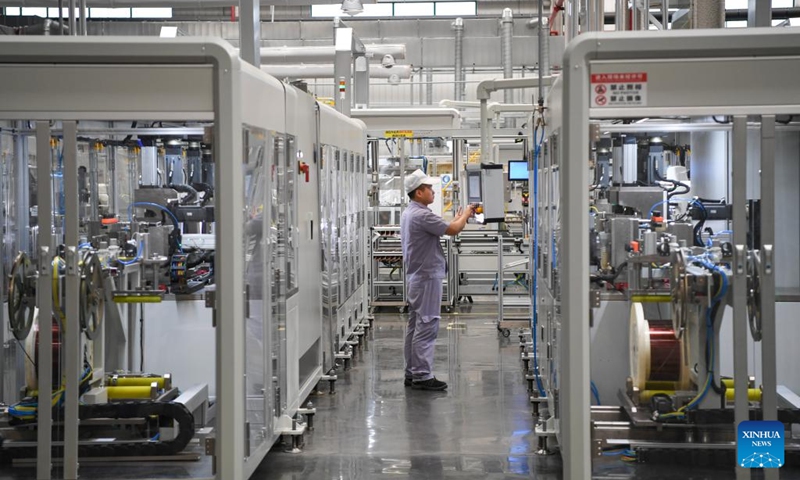
A worker works at a motor stator and rotor workshop of a company in the Western Science City in southwest China's Chongqing Municipality, Aug. 24, 2023. In recent years, Chongqing's Western Science City has vigorously implemented the intelligent manufacturing cultivation project, guiding enterprises to accelerate the intelligent transformation and digital transformation and upgrading, and helping local industries to improve quality and efficiency. (Xinhua/Wang Quanchao)
'Bettered than expected'Although Western media outlets' discussion of China's economy is heated, there is not enough logical thinking in their reporting, Cao Heping, an economist at Peking University, told the Global Times on Tuesday.
"In the first half of 2023, China's GDP growth stood at 5.5 percent year-on-year, which is faster than the 3-percent annual growth last year, and rank among the best of major economies. The US' GDP growth rate is less than half that of China," Cao said, noting that the Chinese economy is better than many in the West expected.
Along with the in-depth implementation of the innovation-driven strategy, digital economy and green development have become new drivers of China's economic growth. In the first half of the year, the country's export of lithium batteries, solar cells and electric passenger vehicles grew by 61.6 percent year-on-year, official data showed.
According to the IMF, China's economy is expected to grow by 5.2 percent in 2023, while the US GDP is projected to grow by 1.8 percent this year.
"It's worth noting that China didn't resort to flood irrigation-style massive stimulus to drive up its economy, and instead the country's digital technology-supported sharing economy reported rapid growth. Along with the continuous structural adjustment of the economy and innovation-driven upgrade, the US economy will be left behind China," Cao said.
The US' mountain of debt continues to spike and the growing proportion of interest expense to GDP brews dollar crisis. The US' high interest rate curbs economic development and ripples through the banking sector, said Tian Yun, a veteran economist based in Beijing.
"The Chinese central government is implementing whatever policies the market needs, with growing intensity. With the trend to be continued, the Chinese economy will take off again during the next cycle of US cutting interest rates," Tian told the Global Times.
The great potential of the Chinese economy is beyond all doubt. The US' containment and crackdown did not and will not hinder China's economic growth, Tian said.
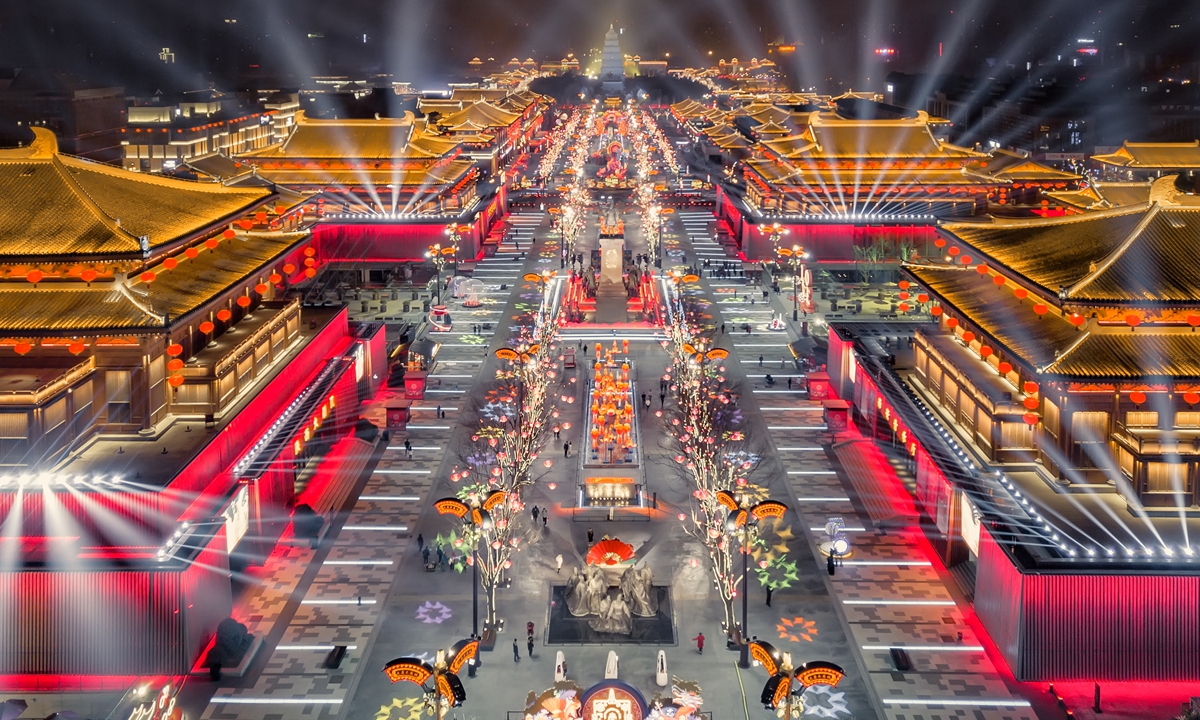
A scene at the Datang Everbright City in Xi'an Photo: VCG
Economic miracle carries on"There is no denying that China is currently facing some challenges, as the sluggish global economic recovery and financial turbulence in the US and the EU pose significant economic challenges for every country," Tu Xinquan, dean of the China Institute for WTO Studies at the University of International Business and Economics in Beijing, told the Global Times.
China's post-COVID-19 economic recovery is characterized by undulating progress sometimes with twists and turns, he said, noting that Chinese policymakers have moved swiftly to tackle various challenges with the release of a host of substantive policies in various areas to boost growth, especially that the setup of a bureau specializing in promoting the private economy's development sends a signal of long-term support for the private sector.
"Recently, we have seen some signs of economic rebound in the stock and property market. The country's economy will show better performance in the fourth quarter," Tu said, expressing confidence that the country will be able to meet the economic and social development goals for 2023.
Denis Simon, president of the Alliance of Global Talent Organizations, told the Global Times on Monday at a CIFTIS sub-forum that such a [gloomy] narrative about China's economy does not match the OECD prediction, which is not so bad, 5.4 percent for 2023 and 5.1 percent for 2024. That's still growing faster than the US and twice as fast as the global economy.
Judging from the strong growth of the Chinese economy in the first half and its resilient performance relative to other global economies, we are quite confident that China's economy will achieve a targeted growth rate of around 5 percent this year, Jane Yang, Managing Partner of Ernst & Young (EY) Beijing Office, told the Global Times in an interview.
Chinas economy has strong resilience, great potential and vitality, and its long-term fundamentals remain unchanged. In the first half of this year, China's economic growth has recovered amid fluctuations, and the economic growth rate of 5.5 percent is still a positive and confidence-instilling figure. As the largest developing country in the world, China is still on the track of medium-to-high speed economic growth, and the around 5-percent economic growth target is in line with the trend and law of economic development.
Betting on China's bright economic prospect, leading multinationals including HSBC, home furnishing company IKEA and toymaker Lego have increased their presence in the huge market. For example, HSBC said on Monday that wholly owned subsidiary HSBC Insurance Brokerage Co has received regulatory approval in China for its securities investment fund sales qualifications, making it the first management institution to hold both an insurance brokerage and a fund sales license in China to capture opportunities in China's 28.8 trillion yuan ($3.93 trillion) market.

